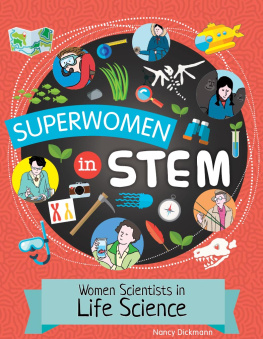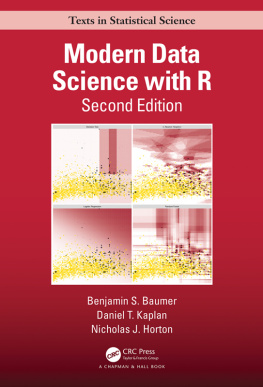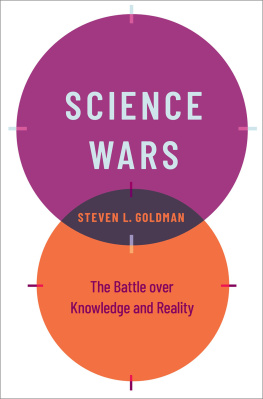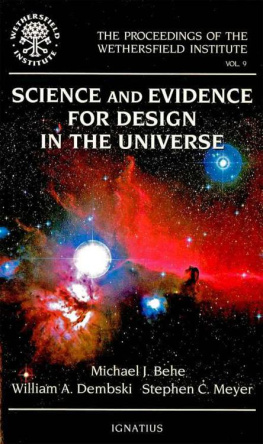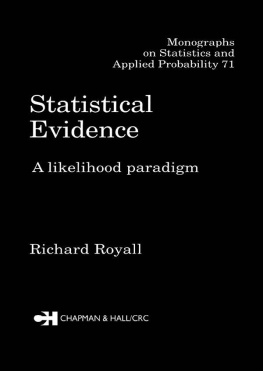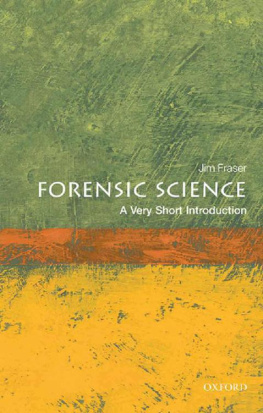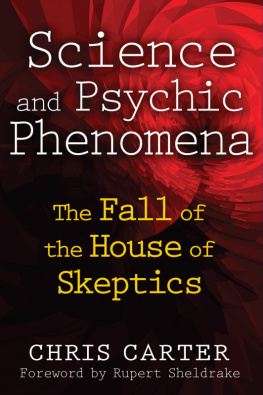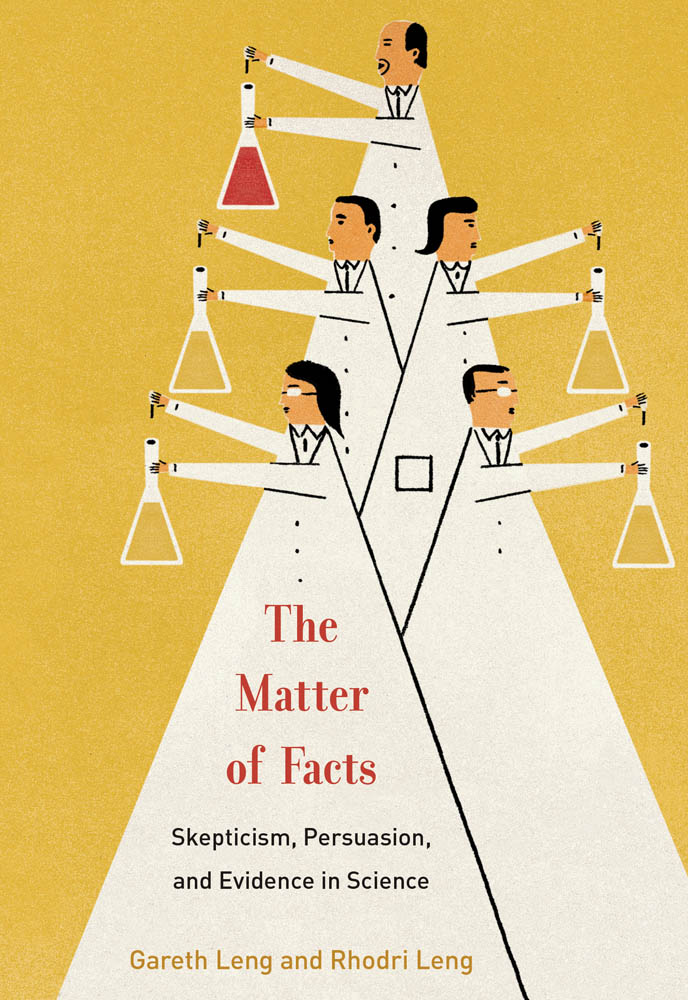
The Matter of Facts
The Matter of Facts
Skepticism, Persuasion, and Evidence in Science
Gareth Leng and Rhodri Ivor Leng
The MIT Press
Cambridge, Massachusetts
London, England
2020 Massachusetts Institute of Technology
All rights reserved. No part of this book may be reproduced in any form by any electronic or mechanical means (including photocopying, recording, or information storage and retrieval) without permission in writing from the publisher.
Library of Congress Cataloging-in-Publication Data
Names: Leng, G. (Gareth), author. | Leng, Rhodri, author.
Title: The matter of facts : skepticism, persuasion, and evidence in science / Gareth Leng and Rhodri Ivor Leng.
Description: Cambridge, Massachusetts : The MIT Press, [2020] | Includes bibliographical references and index.
Identifiers: LCCN 2019029887 | ISBN 9780262043885 (hardcover)
Subjects: LCSH: Science--Methodology. | Evidence. | Empiricism. | Facts (Philosophy) | Research--Evaluation. | Communication in science. | Science publishing--Moral and ethical aspects.
Classification: LCC Q175.32.T78 L46 2020 | DDC 500--dc23
LC record available at https://lccn.loc.gov/2019029887
Contents
Rhodri:
This book grew from conversations with my father about what Science involves, what makes it special, and what causes it problems.
In 2016, we found ourselves working at the same university for the first time in our careers. Whereas he was approaching retirement after a long and distinguished career in experimental physiology, I was just beginning mine as a social scientist interested in the way evidence spreads in the scientific community. Despite our different backgrounds, we shared an interest in how science develops, how evidence is produced and used, and how the evaluation of evidence is taught at university.
This book is the result. It is not a systematic introduction to the sociology, philosophy, or history of science but about particular issues that we feel need reflection. We have tried to capture our admiration for the scientific process as well as an understanding of its complexity and fragility in the face of the many problems that now confront it. We dont propose answers to the problems we survey, but we do offer a context in which these problems may be understood. This book isnt trying to simplify science or direct you to a particular way of seeing it. It is there to provoke you.
Our hope is that this book might help students to see the contestable nature of knowledge, to get them to engage seriously with methodology, with empirical findings, with logic, and with the important flaws in Science that they must be aware of. For those who, like me, are at the beginning of their academic careers, I hope that you find it as useful as I have in navigating the complexities and pressures of academic life. Ive been troubled by the prevalence of bias and poor research design, inspired by scientists confronting the dogma of their fields and pursuing novel research, and reassured that Science, though flawed in important ways, remains worth pursuing. Science is a human endeavor, and it is beset by the flaws all humans have, but it is endowed with their virtues too.
I need to first thank my partner, Hayley Urquhart, whose unwavering support and patience was tested to the limit with my decision to simultaneously write a book alongside my PhD.
I would also like to thank all the students that I have taught over the years at Edinburgh. Seeing you develop into confident researchers at ease with questioning and scrutinizing data and theory has instilled a lasting faith in me of the virtues of critical discussion and scholarship. I also wish to thank Daniel Kenealy, Lindsay Paterson, Richard Brodie, and Miguel Garcia-Sancho for giving me the opportunity to teach and for their valuable guidance. I must also thank Gil Viry for introducing me to network analysis and teaching me its fundamentals. Finally, I would like to thank my supervisors, Steve Sturdy and Valeria Skafida, for their support and understanding over the years, and the Economic and Social Research Council for providing me with funds to pursue a PhD through their Advanced Quantitative Methods scholarship.
Gareth:
As Rhodri says, this book sprang from conversations between a father and son, between a sociologist and a scientist, between a teacher and a student. I was more the student, and he perhaps more the scientist.
I must thank George Fink for putting me right on Geoffrey Harris, and Tony Trewavas and Steve Hillier for sharing their anecdotes. We must also thank another of my sons, Trystan, for painstakingly reading through the drafthe is also a network scientist, as well as being a philosopher and mathematician. And we must also thank Nancy Sabatier, whose sharp eyes caught some embarrassing blunders, and whose constant support was priceless.
My father, Rhodris grandfather was Ivor John Leng, a sociologist himself, a pioneer in quantitative methods, and author of Children in the Library (University of Wales Press, 1968). He taught me what it means to be a scholar. If this book is about anything, it is about that, and we dedicate this book to his memory.
Rhodri Leng and Gareth Leng
June 2019
At the foot of the Gerbier de Jonc, a gorse-covered rock in the Ardche, a spout of clear water emerges from a wall within an old stone barn. Outside, a sign declares ici FERME de la LOIRESOURCE GEOGRAPHIC de la LOIRE. Here, it seems, is the source of the Loire, the longest river in France, that glorious river celebrated in paintings by Monet and Sisley, a river once navigated by Vikings to sack the city of Tours, a river which, during the Hundred Years War, marked the border of English possessions in France.
In what sense is this trickle the source of the Loire? If we stem it, will children in Tours go thirsty? Across the road, another sign simply declares La Loirethis is La Source Authentique. From day to day, this spring may flow or notit depends on the level of the water table. About a kilometer south is La Source Vritablethe true sourcewhere a hand-written sign declares ici commence ma longue course vers lOcan. This spring flows into a trout pond. Close by is a marsh, fed by a hidden spring whose waters tumble into a wooded ravine. Down the valley, the waters from these springs converge to become a stream that merges with other streams to become a rivulet fed by other tributaries to become the great river that winds through villages, towns, and vineyards. In the nineteenth century, before railways were built, this was a thoroughfare that each year carried tens of thousands of passengers in steamboats between Nantes and Orlans.
But when two waters merge, which is the river and which the tributary? This depends on which flow is the greater; this can be hard to measure, and each flow will vary with season and rainfall. The largest tributary of the Loire, the Allier, rises in the Massif Central and joins the Loire just south of Nevers where, at their confluence, the Allier is said by some to run stronger than the Loire, in which case perhaps we should be talking about the Chteaux and vineyards of the Allier Valley, rather than of the Loire.
The Loire runs north from the Ardche before turning west to meet the Atlantic at Saint-Nazaire. But during the Pleistocene, the paleo-Loire continued to flow north and joined the Seine, while the lower Loire began near Orlans and flowed west along the present course of the Loire. At some time during the history of uplift in the Paris Basin, the lower Loire captured the palaeo-Loire producing the present river. The Loire today is not the Loire as it once was.
Next page

